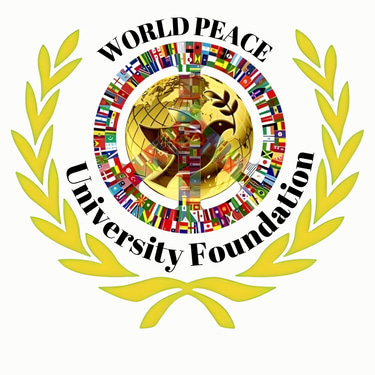Diplomacy in Action: United Nations' Mediation Efforts in Resolving International Disputes
4/23/20243 min read


Diplomacy in Action: United Nations' Mediation Efforts in Resolving International Disputes
In today's interconnected world, conflicts and disputes between nations are inevitable. However, the key to maintaining global peace and stability lies in effective diplomacy and mediation. The United Nations (UN) plays a crucial role in facilitating dialogue and negotiations between nations, offering a platform for resolving international disputes. This article explores the significance of the UN's mediation efforts in promoting peaceful resolutions.
The Role of the United Nations
Established in 1945, the United Nations is an international organization composed of 193 member states. Its primary objective is to maintain international peace and security. The UN serves as a forum for member states to discuss and address global issues, including conflicts and disputes.
One of the essential tools the UN employs in resolving international disputes is mediation. Mediation involves the intervention of a neutral third party to facilitate negotiations between conflicting parties. The UN's mediation efforts aim to bring conflicting parties to the table, encourage dialogue, and find mutually acceptable solutions.
Mediation as a Diplomatic Tool
Mediation is a diplomatic tool that offers several advantages in resolving international disputes. Firstly, it provides a neutral and impartial platform where conflicting parties can voice their concerns and grievances. The mediator acts as a facilitator, ensuring that both sides have an equal opportunity to express their perspectives.
Secondly, mediation allows for creative and flexible solutions. Unlike formal legal proceedings or arbitration, mediation does not impose a binding decision on the parties involved. Instead, it encourages them to explore various options and find a solution that meets their respective interests.
Furthermore, mediation promotes dialogue and communication between conflicting parties. By engaging in constructive discussions, parties can better understand each other's concerns and work towards finding common ground. This process can help build trust and foster long-term relationships, reducing the likelihood of future conflicts.
Success Stories of UN Mediation
The United Nations has a long history of successful mediation efforts in resolving international disputes. One notable example is the mediation led by former UN Secretary-General Kofi Annan in the 2008 post-election crisis in Kenya. Through his diplomatic skills and perseverance, Annan facilitated negotiations between political leaders and helped broker a power-sharing agreement, which brought an end to the violence and paved the way for political stability.
Another significant success story is the UN's mediation in the Iran nuclear deal, officially known as the Joint Comprehensive Plan of Action (JCPOA). The UN, along with the P5+1 countries (United States, United Kingdom, France, Russia, China, and Germany), played a crucial role in mediating negotiations with Iran. The resulting agreement effectively curbed Iran's nuclear program in exchange for sanctions relief, demonstrating the power of diplomacy and mediation in resolving complex international issues.
Challenges and Limitations
While the UN's mediation efforts have achieved notable successes, they also face several challenges and limitations. Firstly, the voluntary nature of mediation means that conflicting parties must willingly participate in the process. If one or both parties refuse to engage or adhere to the mediated agreement, the effectiveness of the mediation may be compromised.
Additionally, the UN's mediation efforts can be hindered by geopolitical considerations and power dynamics. Powerful nations may exert influence or pressure on the mediation process, making it difficult to achieve truly impartial and balanced outcomes.
Furthermore, the complexity of some conflicts and the deep-rooted historical, cultural, and political factors involved can pose significant challenges to mediation. Resolving deeply entrenched disputes requires time, patience, and the willingness of all parties to compromise.
The Way Forward
Despite the challenges, the United Nations remains committed to its mediation efforts in resolving international disputes. To enhance the effectiveness of mediation, the UN continues to explore innovative approaches and best practices. This includes strengthening partnerships with regional organizations, civil society, and other stakeholders to ensure comprehensive and inclusive mediation processes.
Moreover, the UN recognizes the importance of preventive diplomacy, which aims to address conflicts before they escalate into full-scale violence. By identifying and addressing the root causes of disputes, the UN can help create an environment conducive to peaceful resolutions.
In conclusion, the United Nations' mediation efforts play a vital role in resolving international disputes and promoting global peace. Through its neutral and impartial platform, the UN facilitates dialogue, encourages creative solutions, and fosters understanding between conflicting parties. While challenges and limitations exist, the UN remains committed to its mediation mandate and continues to work towards a more peaceful and stable world.
Connect
Email : info@wpufoundation.org
Follow
Stay Connected with Us
+1 (564)243 9111
World Peace University Foundation is 501(c)(3) nonprofit organization EIN - 99-1863511, All donation is tax dedcutable as federal govt rule. ©2024 WPU-F. All rights reserved.
Address
424 W. Bakerview Road, Ste 105-2056
Bellingham, WA 98226 United States
